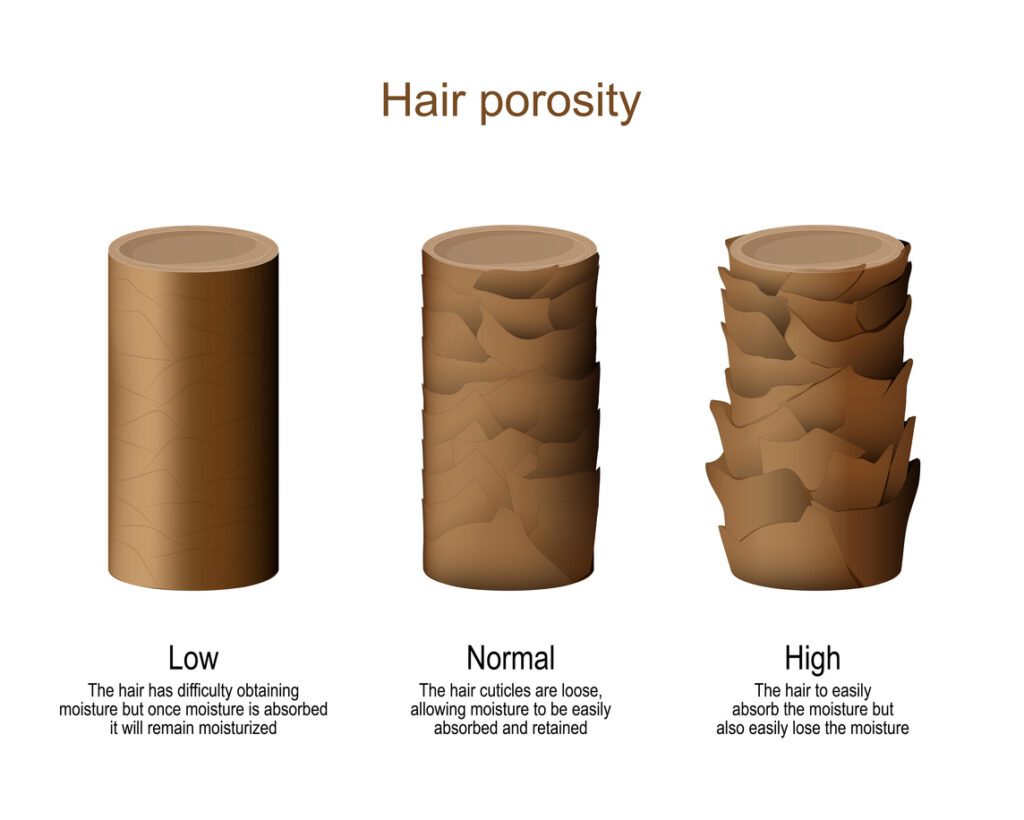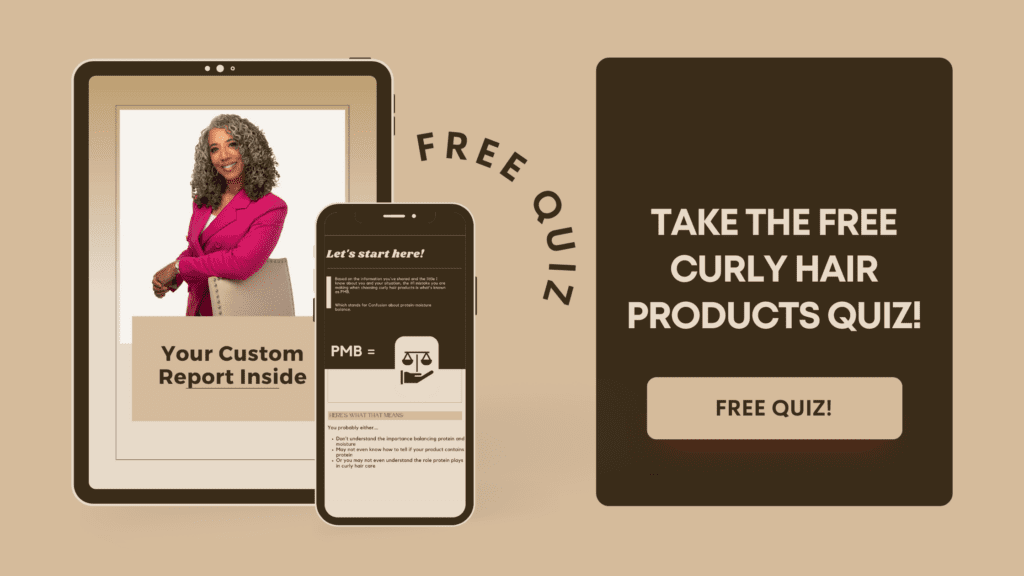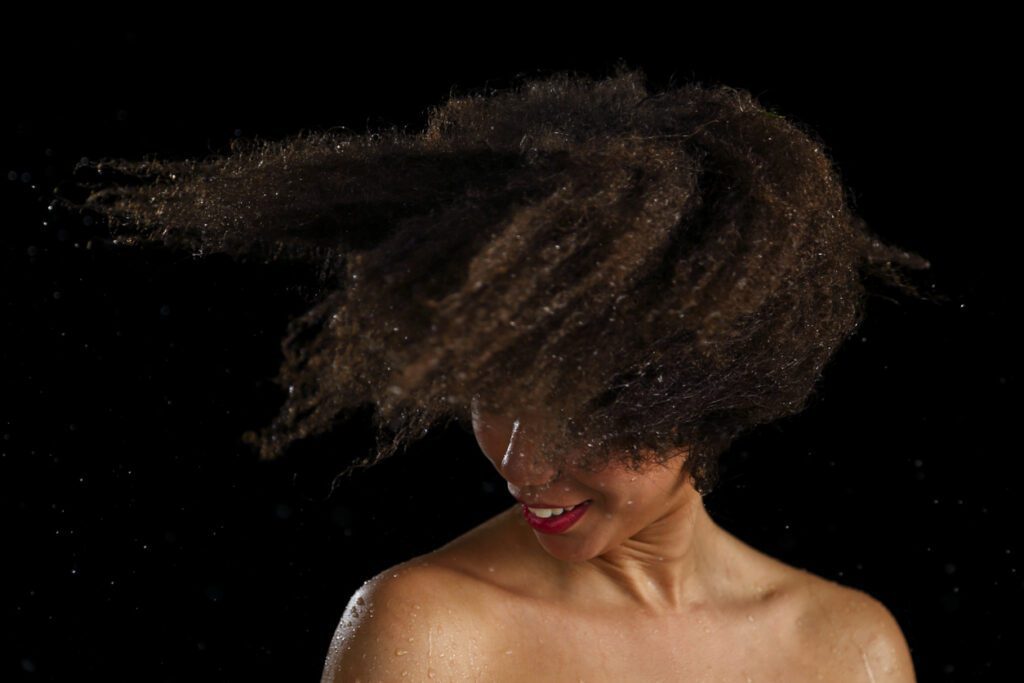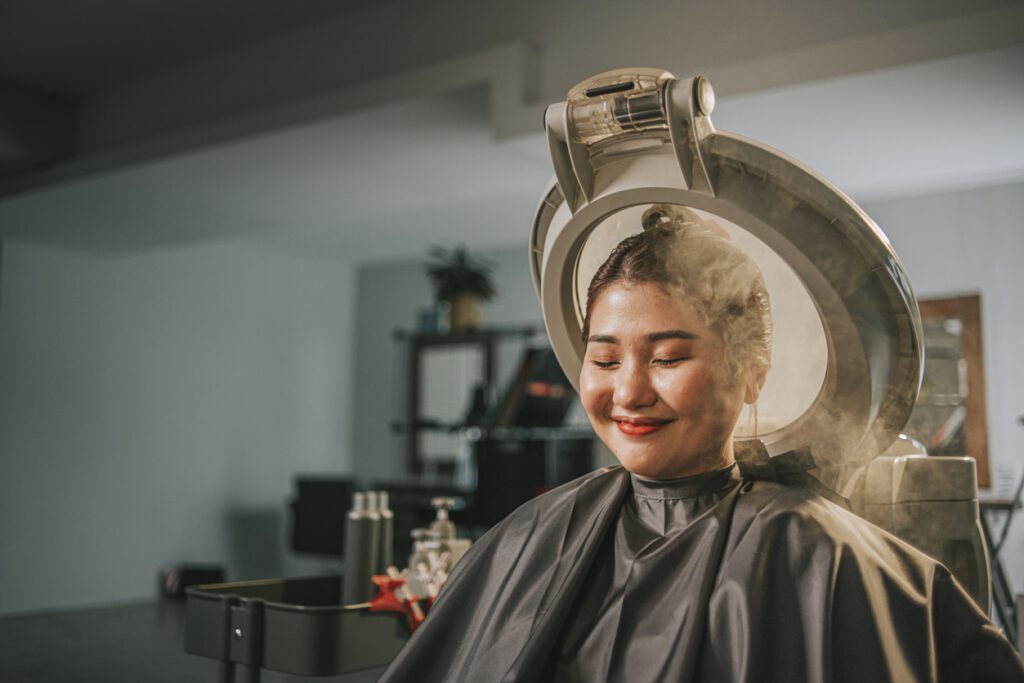
Low porosity hair is one of the three porosity types, and it can be a bit tricky to manage at first. But don’t worry! We’ve got the ten best are tips for low porosity hair. With the right hair care routine and products, you can easily take care of your low porosity hair.
If you have low porosity hair, the odds are that your hair is healthy and was not chemically manipulated.
What is Low Porosity Hair?
If you have low porosity hair, it means your hair has a hard time absorbing moisture because of the tight cuticle (outer) layer. Low porosity hair has tightly packed cuticles that lie flat, making it difficult for moisture and products to penetrate the hair shaft. This can make your hair feel dry and difficult to style.

This tight cuticle layer allows less water to sink in and less moisture to escape, making low porosity hair less prone to breakage than high porosity hair. Low porosity hair takes a while to get saturated by water and consequently takes a long time to dry.
Characteristics of Low Porosity Hair
You have low porosity hair when water droplets from a fine spray bottle sit on top of the hair for a long time before absorption.


Low porosity hair can have a lot of product buildup and look dull because there is nowhere for the product to go once it is applied. The product will just sit on top of the hair.
The good news is that low porosity hair is healthy hair. People with low porosity hair need to increase the amount of moisture that gets into the hair shaft by using lightweight and water-based products. They should avoid heavy oils and butters as they can sit on the cuticle layer without penetrating.
Steam treatments or heat caps can help open the cuticle layer somewhat, allowing water vapor to enter the hair shaft. Clarifying shampoos or apple cider vinegar rinses can help remove product buildup from low porosity hair.

The Ten Best Low Porosity Hair Care Tips:
- Pre-poo: Apply a pre-shampoo treatment with low heat to your hair before washing it to help relax the cuticles and allow moisture to penetrate.
- Wash your hair regularly: Regular washing can help remove product buildup and keep your scalp clean and healthy. Wash with warm water to raise the cuticles and open the hair shaft. Do not focus on how long the conditioner sits on the hair but on how well you work it in, how much water you pump into the strands, and how much you can raise the cuticle with warmth – the water will hydrate while the conditioner softens. In other words, “squish to condish.”
- Moisturize mid-week: Use a lightweight moisturizer mid-week as needed to keep your hair hydrated between washes.
- Seal in moisture: After applying a moisturizer, seal it in with a light oil to prevent moisture loss. Similarly, film-forming humectants like flax seed, aloe vera gel, okra gel, and xanthan gum form transparent, flexible films over the hair strands to trap water and keep the hair hydrated.
- Use lightweight products: Low porosity hair needs lightweight products that can penetrate the tight cuticles and nourish the hair from within. Avoid heavy oils and butters with this hair type. Use light leave-in conditioners when hair is dripping wet. Try wet plopping to allow better absorption of products into the hair shaft.
- Deep condition regularly with low heat: Deep conditioning treatments with low heat can help raise the cuticles and allow moisture to penetrate the hair shaft. Use indirect heat from a thermal cap, steamer, hot towel, or a hooded dryer on low heat to get the moisture to penetrate.
- Be careful with large proteins: If your hair products contain protein, these should be hydrolyzed or smaller proteins, peptides, or amino acids.
- Use emollient ingredients: Emollients like babassu oil, jojoba oil, almond oil, and argan oil can help moisturize low porosity hair without weighing it down.
- Cover your hair: Wear a satin or silk scarf or bonnet at night to prevent friction and breakage. And use a silk or satin pillowcase in case the scarf comes off!
- Clarify regularly: Clarify consistently as low porosity hair is prone to build up. You should avoid cowashing altogether or do so only sparingly.
It may take some time to figure out what works best for your low porosity hair, so be patient and experiment with different products and techniques until you find what works best for you. We hope that our ten best are tips for low porosity hair will work for you.
Remember that low porosity hair is relatively healthy but requires specific care and attention. Proper maintenance ensures low porosity hair can remain strong and shiny.
Be sure to cleanse the hair properly – an apple cider vinegar rinse works wonders.
Check out our Ultimate Guides for the best hair products. To quickly and easily purchase hair products and accessories check out CurlPlanet. You can also download the free App.
Read more about hair porosity HERE.






